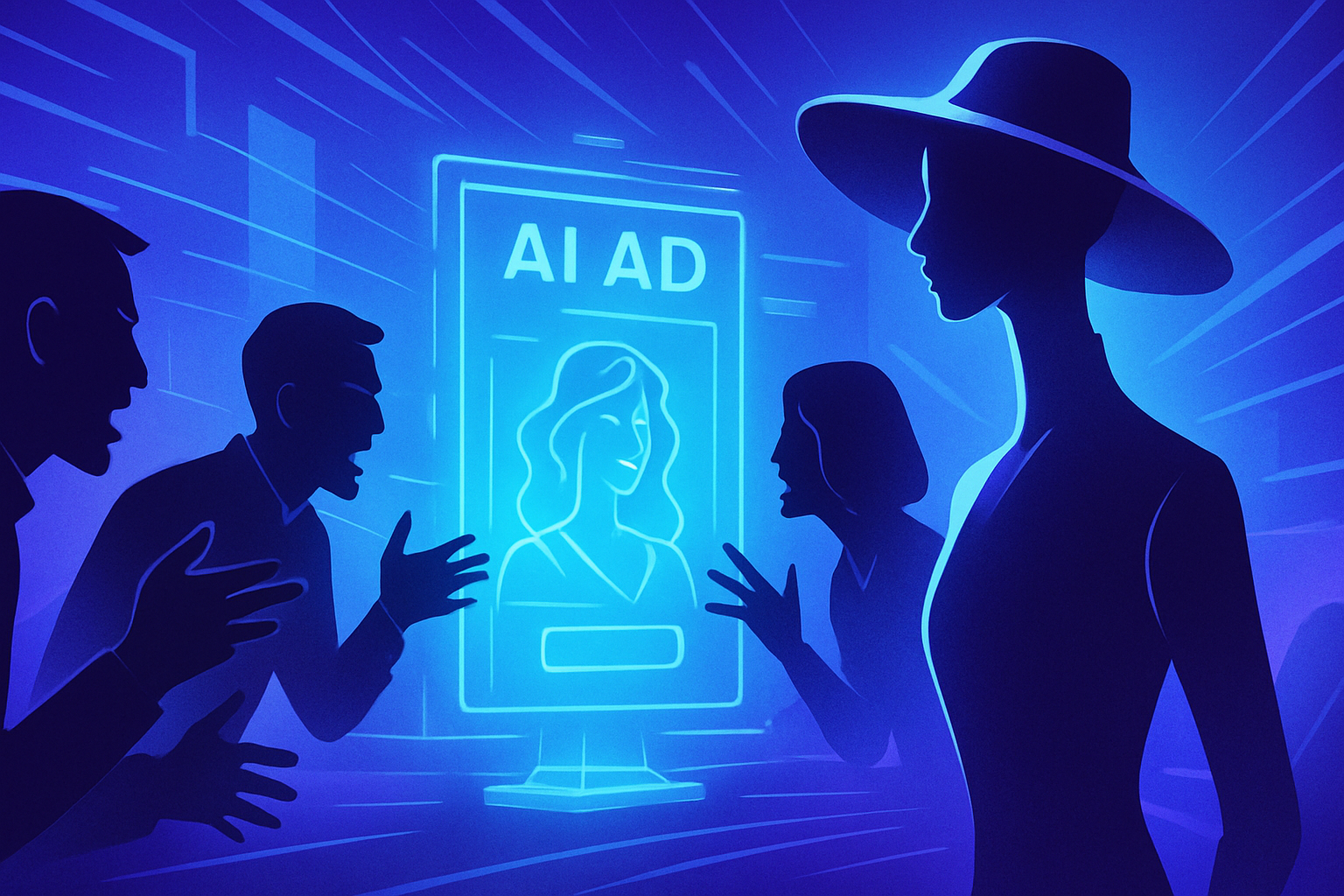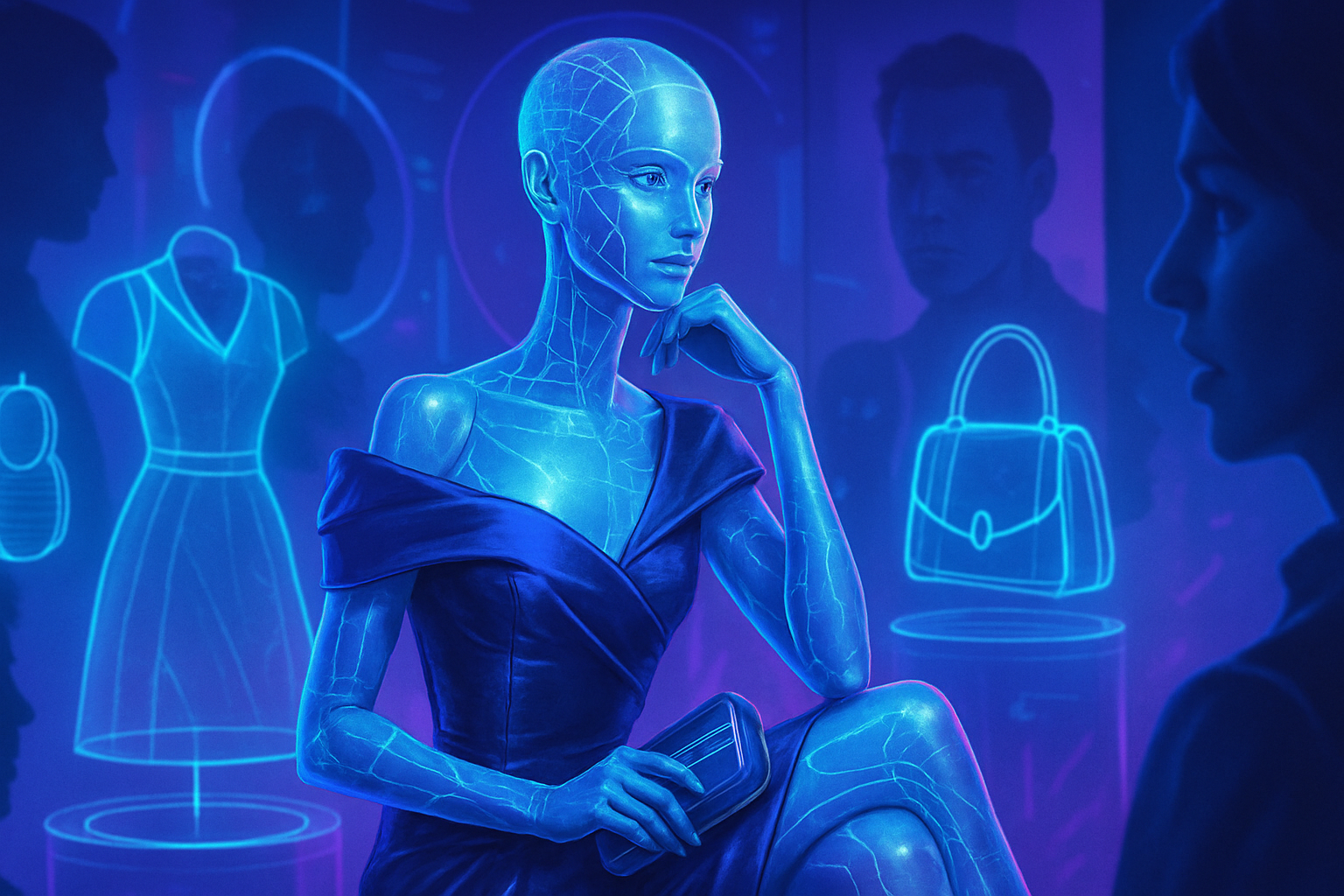The controversy over AI-generated advertisements is shaking the landscape of advertising creativity. Vogue, a symbol of luxury, has refrained from commenting, thereby amplifying the discomfort among consumers. The use of AI raises deep ethical questions. The online debate is strengthening, with voices rising against this practice deemed misleading. Brands risk tarnishing their image. User reactions denounce campaigns that erode *authenticity* and *transparency* in communication. The tension between technological innovation and artistic integrity persists, foreshadowing lasting repercussions for the industry.
Controversy over AI-generated advertisements
The recent video by content creator and songwriter Ellie Voxel has sparked strong reactions regarding the use of artificial intelligence in advertising. In her TikTok presentation, Voxel analyzed three ads published in the latest issue of a prestigious magazine, pointing out that only one of them was clearly labeled as AI-generated.
Analysis of the advertisements
The first example comes from a campaign for Skechers sneakers. According to Voxel, on this occasion, the brand had already explored the potential of AI in an advertisement for Vogue back in February. This precedent is part of a larger context where brands exploit emerging technologies to capture consumer attention.
The second ad, which immediately drew criticism, was the only one to clearly display its AI origin. Ellie Voxel observed details such as the excessive perfection of the protagonist’s hair but particularly noted an anomaly on her ring finger: “It’s just not quite right,” she stated. This analysis highlights the challenges of creating realistic images using artificial intelligence software.
Public reactions and growing concerns
A third example featured a woman lying on a sofa, holding a magazine obscuring her face. This image aimed to promote recovery after cosmetic surgery. Voxel noted that the AI was detectable through overly perfect lines in her hair and strange details on her jewelry. This observation raises ethical questions about the use of AI in sensitive contexts like health.
Audience reactions to the video widely shared their concerns. One particularly noted comment suggested that the use of AI for advertising should be considered false advertising. Other users argued that brands had “devalued their image” with such practices. These reactions illustrate a growing trend where the public questions the transparency of sponsored content.
Vogue’s silence and public expectations
As online discussions multiply, Vogue has yet to issue an official comment on this controversy. The publication’s silence seems to fuel uncertainty and unrest among subscribers and critics. The online community is desperately awaiting a response to clarify the situation and establish norms to be respected around the use of artificial intelligence in advertising.
This debate is not limited to a simple aesthetic dispute; it is a larger issue that involves all creative industries. The rise of AI raises questions about corporate responsibility, honesty toward consumers, and the future of creative marketing. Advanced techniques, such as those proposed by Google, contribute to exacerbating these concerns, as does the growing influence of AI on content creation.
Therefore, the implications of using AI in the advertising sector are of paramount importance. Brands must weigh the benefits of such technology against the risks of harming their reputation. Ethical issues will remain at the heart of discussions as long as the public demands greater authenticity in the messages conveyed by major brands.
Frequently asked questions about the controversy surrounding AI-based advertisements
What are the main concerns regarding AI-generated advertisements?
The major concerns include transparency, the risk of misleading the consumer, and the impact on brand authenticity. Users fear that these methods could create a new wave of false advertising.
Why hasn’t Vogue commented on the controversy surrounding AI-based advertisements?
Vogue has not provided an official explanation, raising questions about their stance on the use of AI in their advertising campaigns.
Are AI-generated advertisements considered false advertising?
Yes, according to some commentators, the use of AI without appropriate disclosure can be classified as false advertising, as it may mislead consumers about the nature of the promoted products.
How do consumers react to the use of AI in advertisements?
Reactions vary, but many express concerns and growing dissatisfaction on social media, labeling these practices as devaluing brands.
Which companies have been cited for using AI in their advertisements?
Brands like Skechers have been highlighted for their use of AI in campaigns, leading to online debates about the ethics of such marketing strategies.
What implications does this have for the advertising industry?
This controversy could prompt companies to revisit their advertising strategies, emphasizing transparency and authenticity to maintain consumer trust.
What role do social media play in the debate around AI advertisements?
Social media serves as an opinion driver, allowing users to express their concerns, amplifying controversies and putting pressure on companies to take a stance.
What are consumer expectations regarding transparency in AI-based advertisements?
Consumers expect clear indications regarding the use of AI so they can make informed choices and assess the authenticity of advertising campaigns.
Are there examples of AI-generated advertisements that have drawn criticism?
Yes, some advertisements, particularly those featuring troubling visual elements or unrealistic details, have been particularly criticized for their potential to mislead.






